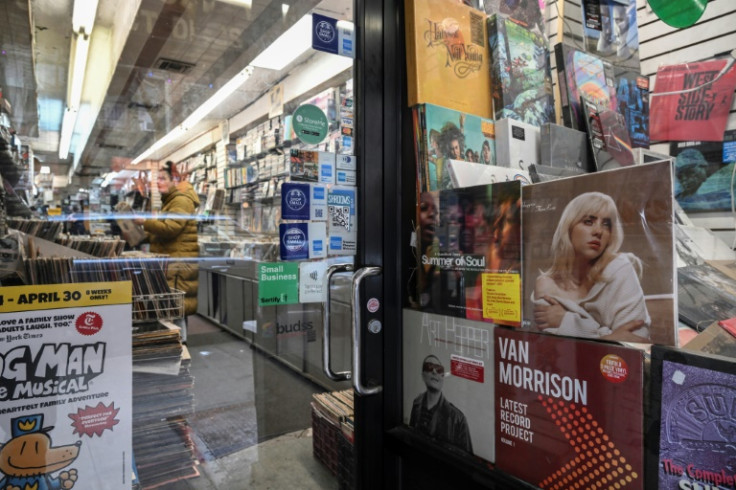From Organic Avocados to Luxury Candles: Shocking Rise in Britain's Middle-Class Shoplifters
Retailers are baffled at the influx of middle class women stealing jewellry, cheese and branded clothing items.

Retailers across the UK are facing record levels of violence and abuse, but a recent survey has revealed an unexpected and frustrating challenge: a surge in middle-class shoplifters. While theft has traditionally been associated with financial hardship, many of these new offenders are not stealing out of desperation but rather a warped sense of entitlement. With self-service checkouts making theft easier than ever, shoplifting has become a growing problem in affluent communities, forcing retailers to rethink their approach to security and customer trust.
Survey Reveals Concerning Pattern
A recent poll conducted by The Grocer magazine surveyed 1,000 British shoppers and uncovered alarming trends in retail theft. The findings suggest that self-service checkouts are enabling large-scale shoplifting, with 37% of respondents admitting to intentionally failing to scan items. The issue was found to be particularly prevalent among men and individuals under 35.
Additionally, 32.5% admitted to deliberately weighing loose items incorrectly, while 38% confessed to using the 'banana trick'—a method where shoppers scan expensive products as cheaper alternatives, such as weighing electronics as fruit.
The Bizarre Case of Middle-Class Shoplifters
Retailers have increasingly identified a new type of shoplifter: middle-class individuals who, despite being financially comfortable, feel justified in stealing.
Inge Dunbar, a retailer in Haslemere, noted that theft in her store was predominantly committed by 'well-off middle-aged women'. The stolen items were not essentials but high-end products, including jewellery and luxury Jellycat soft toys. 'If someone's stealing bread, of course, you feel sympathy because they're struggling,' she told MailOnline. 'But when they're stealing in a shop like this? That's not to do with the cost of living crisis.'
Criminology expert Matt Hopkins suggests that self-checkout systems provide an opportunity that turns ordinary people into thieves. He argues that the lack of human oversight in these transactions lowers the psychological barrier to stealing, leading many who would otherwise never consider theft to act on impulse.
Richard Fowler, head of security at Planet Organic in Chiswick, West London, has also noticed this growing trend. Despite attracting wealthy customers who regularly shop for high-quality, organic products, the company loses approximately £900,000 annually to theft. Fowler explained to the BBC: 'They shop in Planet Organic on a daily basis, they spend a lot of money with our business. [They think], "Today, I'm a little bit short of money, so I'm entitled to steal something."'
Marks & Spencer chairman Archie Norman has also spoken about this growing issue, arguing that entitlement plays a significant role. Speaking to The Telegraph in 2023, he said: 'It's too easy to say it's a cost of living problem. Some of this shoplifting is gangs. Then you get the middle class. With the reduction of service in a lot of shops, people think: "This didn't scan properly, or it's very difficult to scan these things through, and I shop here all the time. It's not my fault, I'm owed it."'
Despite the rising crime wave, retail workers are becoming increasingly hesitant to report or confront shoplifters, as offenders are becoming bolder and, in some cases, aggressive when challenged.
The Posh Thief: An Old Tale
While the recent spike in middle-class shoplifting is alarming, it is not an entirely new phenomenon. A 2009 report by The Guardian linked a rise in shoplifting to the recession, noting that theft had increased by 20% to £4.88 billion in just one year.
Rather than stealing essentials, many middle-class shoplifters were caught taking high-end cheeses, luxury chocolates, and branded goods. Since these items were not being resold, retailers concluded that many offenders were simply trying to maintain their standard of living despite economic hardships.
A Troubling Increase in Retail Crime
The latest figures reveal that thefts and assaults in UK stores have reached their highest levels since 2001. In the 2023/24 financial year, there were an estimated 20 million shoplifting incidents—an average of 55,000 per day. Reports of violence have also surged, with 2,000 incidents daily, including 70 cases where workers were threatened with weapons.
Helen Dickinson, chief executive of the British Retail Consortium, has warned that retail crime is now 'spiralling out of control'. This concern is shared by Chris Brook-Carter, CEO of The Retail Trust, who said thousands of retail workers have reported 'horrifying incidents of abuse and violence'.
The Steep Cost of Crime on Retailers
Despite retailers investing £1.8 billion in security measures such as CCTV and in-store security guards, retail theft has still cost businesses £2.2 billion.
To combat shoplifting, companies such as M&S, Uniqlo, and Zara have introduced new self-service machines using RFID (radio-frequency identification) technology. These machines automatically detect clothing placed in designated 'baskets' and deactivate security tags only after purchase. This eliminates the need for manual scanning, reducing the opportunity for theft.
However, these high-tech solutions come at a cost. RFID tags range from £15 to £40 ($20 to $50) per unit, and rolling out such systems across multiple stores represents a significant financial burden for retailers.
Addressing the Root of the Problem
The rise in middle-class shoplifting highlights a troubling shift in attitudes towards crime. While financial pressures may play a role, many offenders steal out of a sense of entitlement rather than necessity.
As theft in stores continues to rise, tackling this issue requires a balanced approach—one that addresses personal responsibility while fostering a culture of respect for businesses and their employees. Unless decisive action is taken, both in terms of law enforcement and societal attitudes, shoplifting will remain an escalating problem that threatens the future of British retail.
© Copyright IBTimes 2025. All rights reserved.





















